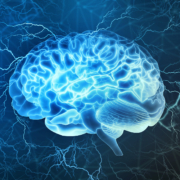How biomarkers are changing brain tumor diagnoses and treatments
A relatively new diagnostic test that identifies crucial information about brain tumor cells has been helping physicians get more accurate information about their patients in recent years.
For about a decade, neuropathologists have used molecular testing to look for biomarkers, measurable characteristics that are present in tumor cells, including genetic mutations. The findings enable physicians to make more accurate diagnoses and, in some cases, offer patients more effective treatments.
“Molecular markers are much more precise in predicting how these patients do, [compared to] histologic diagnosis, which is determined based on staining [cells] in the lab, looking at the tumor under the microscope,” said Dr. Jan Drappatz, director of the neuro-oncology program at University of Pittsburgh Medical Center in Pittsburgh, Pennsylvania.
Molecular testing helps classify brain tumor cells and identify predictive markers, which are pieces of genetic information that accurately predict the response of tumor cells to specific therapies.
“The markers have a reasonable chance of giving us a tool, a handle, something with which we can guide therapy and increase our likelihood of successful treatment with reduced side effects,” said Dr. William Charles McDonald, a Minneapolis-based neuropathologist and member of the College of American Pathologists’ neuropathology committee. “Increasingly, the emphasis is [on] not just classifying, but what can we specifically do?”
There are several different biomarkers present in tumor cells. The presence of certain biomarkers may indicate whether a brain tumor will respond to radiation therapy, chemotherapy or targeted therapy. This information lets neuro-oncologists offer patients effective treatments and withhold ineffective treatments.
For example, research published in the journal Nature Medicine in 2023 identified patients with meningioma brain tumors who didn’t benefit from radiation therapy after surgery, based on tumor gene expression. In such cases, neuro-oncologists wouldn’t include radiation therapy as part of a patient’s treatment plan.
“Post-operative radiotherapy in the absence of biomarker guidance would be offering patients all the toxicity but none of the benefits of what would be considered a standard treatment,” said study author Dr. David Raleigh, a radiation oncologist at University of California San Francisco Health in San Francisco.
Because biomarkers provide such important diagnostic and predictive information about brain tumors, the World Health Organization’s Classification of Central Nervous System Tumors changed its guidelines in 2021, requiring molecular testing in order to make a brain tumor diagnosis. Neuropathologists test biopsied brain tumor cells.
Sometimes, pathologists look for biomarkers in patient blood samples when they’re diagnosing other cancers, including leukemia. This isn’t possible for brain tumors, because biomarkers very rarely cross the blood-brain barrier, a semipermeable membrane between blood and brain matter itself. But less invasive testing may be available in the future.
Currently, researchers are investigating whether or not brain tumor biomarkers are detectable in the bloodstream if the blood-brain barrier is disrupted. Other research has discovered brain tumor biomarkers in cerebrospinal fluid, which may eventually result in diagnostic testing.
“If they were able to identify tumors that had reassuring biology, it might spare people a craniotomy,” Raleigh said. “I don’t think that these innovations will necessarily replace long-standing medical approaches, but they might allow for individualization of therapy for patients with brain tumors.”
This article has been factchecked. For more about that process, click here.









